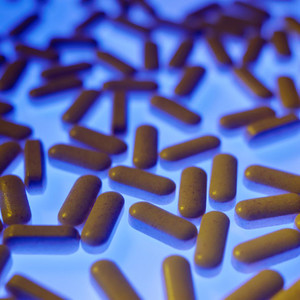A new law introduced in the UK is seeking to clarify and extend the government’s powers to regulate the cost of medicines and medical supplies and to collect sales and pricing information from pharmaceutical companies.
The Health Service Medical Supplies (Costs) Act 2017 (c 23) is an Act of the Parliament of the UK. It provides that pharmaceutical companies can be compelled to reduce the price of a generic medicine or introduce other controls on brand-name drugs in cases where charges are ‘unreasonable’. It received Royal Assent on 27 April 2017. Royal Assent is the monarch’s agreement to make the bill into an Act of Parliament (law).
The NHS (National Health Service) in England spent GBP 15.2 billion on medicines during 2015 to 2016, with over GBP 11.2 billion being spent on brand-name drugs and nearly GBP 4 billion on unbranded generics. This is an increase of over 20% compared to the period 2010 to 2011 and represents a 7% increase compared to 2014−2015. With advances in science and our ageing population, these costs can only continue to grow. Therefore, the UK Government introduced the measures in this Act to amend the NHS Act 2006 and thereby enable the government to secure better value for money for the NHS from its spend on medicines.
The Act has three key aims:
1. It will give extra powers to the Secretary of State to require a payment mechanism in the statutory scheme to limit the cost of medicines and bring it into line with savings made through the Pharmaceutical Price Regulation Scheme (PPRS) [1]. The statutory scheme is used for pharma companies that do not join the PPRS. However, ‘since 2014, the statutory scheme has delivered significantly lower savings for the NHS than the PPRS’.
2. It will enable the UK Government to step in to control dramatic price increases in unbranded generics. The government currently relies on competition to reduce prices. However, in cases where there is no competition there have been cases of large price increases.
3. It will create a comprehensive statutory power, allowing the Secretary of State to demand information on sales and purchases of health service medicines and other medical supplies from all parts of the supply chain, from manufacturer to pharmacy.
However, not everything in the new law is clearly defined, and there have been questions raised as to how the balance between the statutory and voluntary pricing schemes for brand-name drugs will evolve and on the approach the government will take to control excessive generics prices, in particular how it will determine what is an excessive or unfair price.
Related article
UK gets value for money for its medicines
Reference
1. GaBI Online - Generics and Biosimilars Initiative. UK plans to cut drug prices by up to 20% [www.gabionline.net]. Mol, Belgium: Pro Pharma Communications International; [cited 2017 Jun 30]. Available from: www.gabionline.net/Pharma-News/UK-plans-to-cut-drug-prices-by-up-to-20
Permission granted to reproduce for personal and non-commercial use only. All other reproduction, copy or reprinting of all or part of any ‘Content’ found on this website is strictly prohibited without the prior consent of the publisher. Contact the publisher to obtain permission before redistributing.
Copyright – Unless otherwise stated all contents of this website are © 2017 Pro Pharma Communications International. All Rights Reserved.
Source: UK.gov,UK Parliament








 0
0











Post your comment